|  | |
 |
| The State of the WHSC | Thank you to everyone who joined us in person and online for my first annual State of the Woodruff Health Sciences Center (WHSC) address last week. It was a real pleasure to see so many of you in person, and I look forward to seeing many more of you soon as I continue my regular visits to WHSC and Emory Healthcare (EHC) facilities across our campuses. If you couldn’t join us in real time, I hope you’ll take a few moments to view a video of the event, in which I had the opportunity to reflect upon my first 291 days at Emory.
As I discussed the many successes of 2023 to date—some of the top-ranked schools in the country, a billion dollars in research funding, a health system improving its accessibility and technology by leaps and bounds, and a wealth of cutting-edge signature programs—I was also honored to recognize the many people behind our achievements.
As WHSC benefactor Mr. Robert W. Woodruff was fond of saying, “Success or failure in a job is essentially a matter of human relationships.” Mr. Woodruff understood, as I do, that extraordinary progress such as ours doesn’t just happen; our people work hard to make it happen. I’ve seen firsthand that it’s our people who make this institution what it is. Getting out and seeing the excellence and compassion you bring to your work has been inspirational. You are the reason patients, faculty, students, and others want to be part of the Emory family, and I am grateful for all that you do.
I am confident that our best days lie ahead and that we will have many opportunities to continue to grow as we move forward together.
Kind regards,
Ravi
Ravi I. Thadhani, MD, MPH
Executive Vice President for Health Affairs, Emory University
Executive Director, Woodruff Health Sciences Center
Vice Chair, Emory Healthcare Board of Directors
Please direct questions and comments to evphafeedback@emory.edu. | |
| |
| 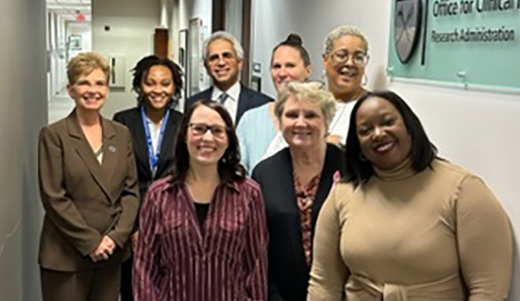 | Our People | When we announced a few months ago that the WHSC had surpassed the milestone of $1 billion in research funding, we were all excited to acknowledge the superb scientists who call Emory home—and rightfully so. But did you know that behind every extraordinary investigator is a team of dedicated professionals managing the highly complex administrative oversight required to apply for, monitor, manage, and track awards?
This group is the Emory Office of Research Administration, which includes the Emory Office for Clinical Research (OCR). I recently had the pleasure of meeting Assistant Vice President for Research Administration and Executive Director of OCR Robin Ginn and several members of her team. OCR is comprised of six specialized teams that are highly skilled in managing several areas that are crucial to our research enterprise: education and quality improvement, pre-award clinical trials, clinicaltrials.gov and compliance, clinical research navigation, data integration and integrity, and invoicing.
The team’s goals include promoting patient safety through care provider access to clinically relevant research information at the point of service; promoting compliance with clinical research including research billing, protocol adherence, good clinical practice, and clinicaltrials.gov; developing and managing financially viable research budgets and invoices for timely payments; and implementing process improvement initiatives that align with Emory and the Office of Research Administration's mission.
This team’s enthusiasm for their mission is palpable. “We are passionate about bringing clinical research to Emory for the best patient care and access to the latest advances in research,” Robin says. “We continuously strive to improve our processes by promoting patient safety, research compliance, and financial integrity. Our charge is to transform research—together—and to enhance Emory’s standing as a premier research institution.”
Thank you, Robin and the entire Office for Clinical Research, for helping us improve lives and provide hope!
To nominate a colleague to be featured in an upcoming segment of Our People, please email me at evphafeedback@emory.edu and let me know what makes them special.
Pictured above l-r: Bridget Benson, Vickie Swafford, Jenny Prozonic, Sherry Coleman, Amanda Hutchison-Rzepka, NG Okafor, Robin Ginn. | |
| |
|  | | Two new health care leadership roles | Emory Healthcare has created two new leadership roles to better align the continuum of care for patients across its 11 hospitals. Heather Dexter, CEO of Emory Saint Joseph’s Hospital, has been appointed president of the Emory Healthcare Regional Hospital Division. Hospitals in the new division include: Emory Saint Joseph’s Hospital, Emory Johns Creek Hospital, Emory Decatur Hospital, Emory Hillandale Hospital, and Emory Long-Term Acute Care Hospital. Matt Wain, CEO of Emory University Hospital, Emory University Orthopaedics & Spine Hospital, Emory University Hospital at Wesley Woods, and Emory University Hospital at Smyrna, has been appointed president of the Emory Healthcare University Hospital Division. Hospitals in the newly named division include the four hospitals for which Wain already has oversight, as well as Emory University Hospital Midtown. Read more.
| | |
| | | 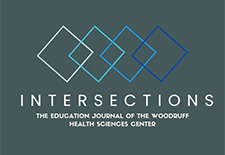 | | Recognizing educators’ contributions with Intersections | At an academic medical center, educators don’t always get the same amount of recognition as researchers and clinicians. Intersections: The Education Journal of the Woodruff Health Sciences Center was launched, in part, to elevate and disseminate the important work being done by educators across the WHSC. The Intersections team, co-led by Linda Lewin, professor of pediatrics and co-director of the Woodruff Health Educators Academy, and Kathryn Garber, associate professor of human genetics, launched the journal six months ago. In addition to highlighting educators’ work, the journal offers a training ground for translating education studies into published articles. The journal is also a way to disseminate best practice ideas across the units of the WHSC. Lewin and Garber encourage educators across the WHSC to submit their studies. Learn more about Intersections here.
| | |
|
| |
|  | | NAM elects three new members from Emory, honors a fourth | Three Emory professionals have been elected to The National Academy of Medicine, one of the highest honors in the fields of health and medicine. The awardees are: Wilbur Lam, the W. Paul Bowers Research Chair and Professor of Pediatrics and Biomedical Engineering at Emory and Georgia Tech; Daniele Fallin, the James W. Curran Dean of Public Health at the Rollins School of Public Health (RSPH); and Ighovwerha Ofotokun, the Grady Distinguished Professor of Medicine at the School of Medicine (SOM). The Academy also announced the selection of Judy Wawira Gichoya, associate professor in the Department of Radiology and Imaging Science, as one of the Academy’s 2023 Emerging Leaders in Health and Medicine Scholars. Read more.
| | |
| | | 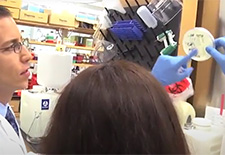 | | Fighting antibiotic resistance | The US Department of Health and Human Services’ new Advanced Research Projects Agency for Health (ARPA-H) is funding the Defeating Antibiotic Resistance through Transformative Solutions (DARTS) project to combat the ever-growing crisis of antibiotic resistance. Harvard Medical School will lead the multi-institution research team. David Weiss, SOM professor and one of the leaders of the Emory Antibiotic Resistance Center, has been named as the principal investigator of the Emory component of the DARTS grant. Earlier this month, the ARPA-H announced that Emory has been selected as the first recipient of funding to drive groundbreaking health research in a three-year, $24.8 million cooperative agreement. Read more.
| | |
|
| |
| 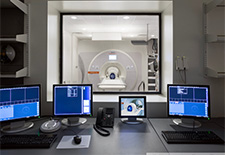 | | MRE to map new frontiers of brain research | Emory's Center for Systems Imaging has obtained Georgia's first 7.0 Tesla MRI system, featuring magnetic resonance elastography (MRE). MRE imaging pairs MRI technology with low frequency vibrations to create an even more vivid image—known as an elastogram—of the body tissue. Elastograms show tissue stiffness, revealing new information about the brain which can’t be visualized any other way. Read more.
| | |
| | |  | | New issue of Winship Magazine now online | The latest issue of Winship Magazine explores the design and inspiration behind the new Winship at Emory Midtown, the US Food and Drug Administration (FDA) approval of the first-ever drug to treat graft vs. host disease, the role of Winship's education and training programs in developing the leaders of the future, an inspiring story behind a new endowed chair, and more. Read the new issue here.
| | |
|
| |
| 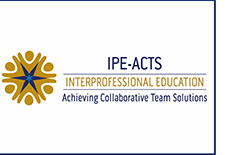 | | Seeking WHSC students as Team Advisors | WHSC students, residents, and fellows are invited to serve as Team Advisors for IPE-ACTS, Emory’s new interprofessional training program for health professional students. Team Advisors must be second-year or above masters- or doctoral-level students at the schools of medicine, nursing, or public health. Residents and post-graduate fellows are also eligible to serve as Team Advisors. IPE-ACTS Team Advisors will assist and guide interprofessional teams of first-year health professional students as they work together to develop a solution to an Atlanta-based health challenge. Learn more here.
| | |
| | |  | | The Achilles heel within SARS-CoV-2 | Emory Vaccine Center researchers have published a report identifying the potential Achilles heel of SARS-CoV-2, the virus that causes COVID-19. Part of the viral fusion machinery seems to stay the same among several viral variants, and this vulnerable machinery is what the antiviral peptide Yongshi targets. A peptide is a small protein or fragment of a protein. Derived from a natural antiviral peptide produced by wild boar, Yongshi (meaning “warrior” in Mandarin) can prevent SARS-CoV-2 from infecting host cells. The scientists are now studying how to adapt the peptide for clinical use. Read more.
| | |
|
| |
| 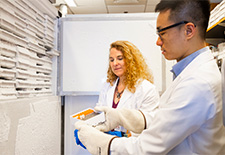 | | Study detects ‘forever chemicals’ in newborns | An Emory-led study into the exposures of pregnant women to per- and polyfluoroalkyl substances (PFAS), also known as “forever chemicals,” is believed to be the first to detect PFAS in newborns and show that exposure to these chemicals during pregnancy increases the likelihood of preterm or early term births. According to the Centers for Disease Control and Prevention (CDC), preterm birth is the second-leading cause of infant death in the US. “An important next step is to investigate where the mothers and children in our study are being exposed to most of these chemicals,” says Anne Dunlop, an SOM professor and co-author of the study. Read more.
| | |
| | |  | | Emerging ‘forever chemicals’ found in homes, drinking water | A study led by RSPH researchers was one of the first to find an emerging class of “forever chemicals” in the homes, drinking water, and bodies of US residents. Most of the existing research has focused on the longer-chain PFAS, which were found to be toxic and have been banned for many years. The new study found that an emerging class of ultrashort- and short-chain PFAS—meant to serve as replacements for the already banned PFAS compounds—are now being found in elevated levels in US residents, as well as their homes and water supplies. Read more.
| | |
|
| |
| 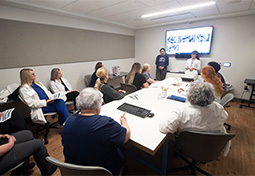 | | Center to address state’s nursing shortage | To address the nursing shortage in Georgia, the Georgia Nursing Leadership Coalition and the Nell Hodgson Woodruff School of Nursing (SON) announced a partnership to house the Georgia Nursing Workforce Center within the SON. The center will research and address issues of supply and demand for nursing in the state, including retention, recruitment, educational capacity, and the distribution of nursing workforce resources. The center will collaborate with health care organizations, business partners, state leaders, universities, colleges, and community-based organizations. Read more.
| | |
| | |  | | Emory to support CDC outbreak forecasting, response initiative | Emory is one of 13 funded partners that will work alongside the CDC’s Center for Forecasting and Outbreak Analytics to establish an outbreak response network that uses data to support decision makers during public health emergencies. A team of Emory researchers received a total of $17.5 million in funding to support the CDC’s new national network as an “innovation performer.” In this role, the Emory team will support the development of a pipeline of new analytical methods, tools and platforms for modeling efforts that will ultimately inform public health decision makers. Read more.
| | |
|
| |
|  | | Emory pioneers ALS genetic data repository | Emory, in collaboration with UMass Chan Medical School and the National Institutes of Health, has secured over $3 million in support from The ALS Association to establish a cloud-based central repository of genetic data, named ALS Compute. This innovative initiative consolidates data from multiple large-scale projects into a single, easily accessible dataset, unlocking the full potential of Amyotrophic Lateral Sclerosis (ALS) and frontotemporal dementia (FTD) research. Until now, ALS genetic data in the US had been fragmented across six separate whole-genome sequencing projects. Read more.
| | |
| | |  | | SON to establish community-based mental health, substance use disorder treatment program | The SON had received a grant from the US Health Resources and Services Administration to establish a program to increase the number of advanced practice nurses and licensed clinical social workers treating mental illness and substance use disorders in nine Georgia counties. The Advanced Practice Provider Integrated Substance Use Disorder Training Program will provide training opportunities for nurses and social workers in primary care clinics and community-based organizations in Bacon, Bibb, Clarke, Coffee, Floyd, Seminole, Thomas, Tift and Ware counties. Read more.
| | |
|
| |
|  | | Researchers discover early indicators of Alzheimer’s disease | The pathological changes that occur in the brains of Alzheimer’s disease patients are notoriously difficult to detect before visible symptoms show up. That’s because brain tissue is relatively inaccessible to scientific study, making it hard to fully understand the slowly developing biological processes in seemingly healthy people that eventually emerge as Alzheimer’s disease decades later. Recently, though, two teams of Emory scientists managed to identify a panel of proteins in human cerebrospinal fluid that provide important early insights into the development of Alzheimer’s disease long before actual cognitive deterioration sets in. The papers were published in Science Translational Medicine and Nature Medicine. Read more.
| | |
| | |  | | Identifying biomarker that tracks recovery from treatment-resistant depression | A team of clinicians, engineers and neuroscientists has made a groundbreaking discovery in the field of treatment-resistant depression published in the journal Nature. By analyzing the brain activity of patients undergoing deep brain stimulation, a promising therapy involving implanted electrodes that stimulate the brain, the researchers from the SOM, Georgia Tech, and the Icahn School of Medicine at Mount Sinai identified a unique pattern in brain activity that reflects the recovery process in patients with treatment-resistant depression. This pattern, known as a biomarker, serves as a measurable indicator of disease recovery and represents a significant advance in treatment for the most severe and untreatable forms of depression. Read more.
| | |
|
| |
|  | | Liotta honored at White House | Researcher and inventor Dennis Liotta has been named to the Bayh-Dole Coalition’s inaugural “Faces of American Innovation.” Liotta is among just five individuals to be recognized with the American Innovator Award by the Coalition. Liotta was selected for “helping to transform HIV from a death sentence into a manageable illness.” Throughout his multi-decade career, Liotta has been instrumental in the creation of novel therapies that have benefited millions of lives around the world. He was one of the leaders of the Emory research team that discovered the antiviral drug emtricitabine (Emtriva), which was approved for treating HIV in 2003. Read more.
| | |
| | | 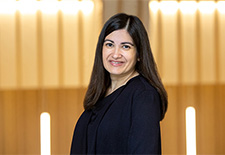 | | Movies underrepresent women in the role of physicians | The representation of women physicians in movies was much lower than the growing proportion of women in medicine, according to a study published in the Journal of the American Medical Association co-led by Reshma Jagsi, chair of Emory’s Department of Radiation Oncology and a Winship researcher. One of the most surprising and concerning findings for Jagsi was the “woeful under-representation of women and people of color in those movies rated G and PG, which is particularly disappointing since that’s the depiction being presented to some of the youngest viewers and shaping their sense of who can and should be a doctor.” Read more.
| | |
|
| |
| 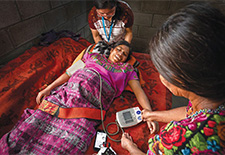 | | AI support for maternal-child health in Guatemala | Google.org has selected safe+natal at Emory and its partners at Maya Health Alliance | Wuqu’ Kawoq to receive a grant to equip midwives with an artificial intelligence (AI)-powered application that will help detect problems earlier in pregnancy and avoid preventable deaths in the first month of life. The grant will allow Emory and Maya Health Alliance to continue implementing the safe+natal initiative, which has demonstrated enormous success in improving pregnancy outcomes in Maya communities in rural Guatemala. Read more.
| | |
| | |  | | Air pollution exposure impacted puberty of US girls | A newly published study by researchers from Emory and Harvard University found a connection between childhood exposure to air pollution and the age at which US girls experienced their first periods. The study found that girls who had higher residential exposure to fine particulate matter air pollution throughout their childhoods tended to have their first periods sooner. Girls who have their first periods at an earlier age face increased risk for several diseases later during their lifetime, including cardiovascular disease, Type 2 diabetes, and certain types of cancer. Read more
| | |
|
| |
|  | | Winship 5K raises more than $1 million for cancer research | More than 3,000 people gathered at Emory's McDonough Field on Saturday, Oct. 7, for the 2023 Winship 5K Run/Walk. The 13th annual event raised more than $1 million for cancer research at Winship. Donations will be accepted through Dec. 31. Read more.
| | |
| | |  | | Expansion of Emory’s national cardiac arrest registry | Emory’s Cardiac Arrest Registry to Enhance Survival (CARES), the only national data collection tool that connects pre-hospital cardiac arrest data with hospital outcomes, will receive $23.85 million in grant funding over the next five years from the CDC. Read more.
| | |
|
| |
| | 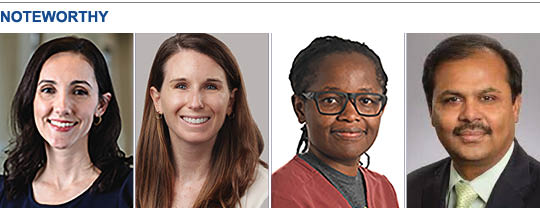 | | Natalie Dean, RSPH assistant professor of biostatistics and bioinformatics, has been named to receive the 2024 Joint Policy Board for Mathematics Communications Award. Read more.
Stephanie Eick, RSPH assistant professor of environmental health, has been appointed to the U. Environmental Protection Agency (EPA) Scientific Advisory Committee on Chemicals. This committee advises EPA on the administration of the Toxic Substances Control Act.
Judy W. Gichoya, Winship radiologist, has been named an Emerging Leaders in Health and Medicine Scholar by the National Academy of Medicine. Read more.
Suresh Ramalingam, Winship’s executive director, was awarded the Paul A. Bunn, Jr. Scientific Award at the International Association for the Study of Lung Cancer World Conference on Lung Cancer. Read more. | |
| |
| | November 14-15 | Emory AI Health Symposium. Join leading experts in artificial intelligence and medicine to explore how AI and machine learning can revolutionize health care in a two-day symposium brought to you by the Emory Empathetic AI for Health Institute. The event will facilitate collaboration between AI researchers and clinicians while delving into the latest advancements, challenges, and opportunities in harnessing AI for medical applications. HSRB I, 1st Floor, Rollins Auditorium. Runs from 9 am on 11/14 to 1 pm on 11/15. Learn more and register here.
| | |
| | | | November 29 | Maternal Health Crisis Symposium. WHSC, Morehouse School of Medicine, and Mercer University School of Medicine, in collaboration with Research!America, will bring together care providers, researchers, and government and community partners to align resources and inspire change to improve maternal and child health throughout Georgia and the Southeast. Emory Conference Center Hotel, 9 am – 3 pm. Learn more and register here.
| | |
|
| |
|

